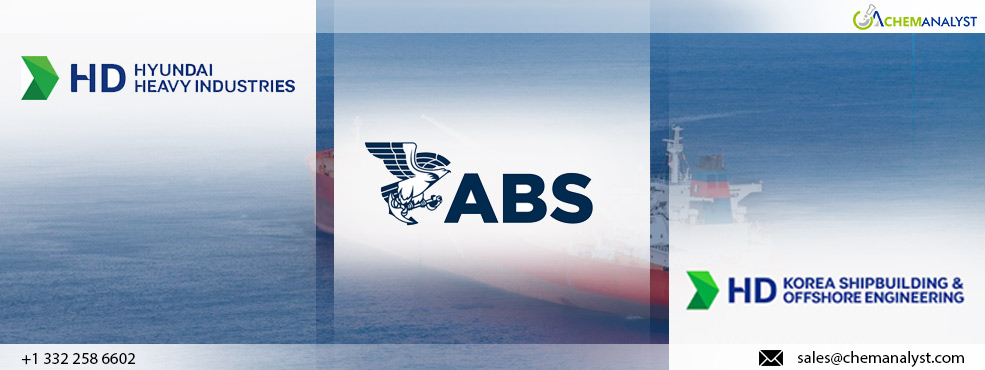Welcome To ChemAnalyst

ABS (American Bureau of Shipping) has granted approval for two new autonomous technologies designed for ammonia-fueled ships, developed by HD Korea Shipbuilding & Offshore Engineering (HD KSOE) and HD Hyundai Heavy Industries (HHI). The approvals in principle (AiP) were awarded at Gastech 2024, focusing on an unmanned ammonia engine room and an artificial intelligence (AI) safety package for these vessels.
The unmanned ammonia engine room technology introduces a remote propulsion control station equipped with gas safety features located on the navigation bridge of ammonia-powered ships. This system allows for continuous monitoring of the machinery space and enables automated corrective actions in the event of malfunctions. According to ABS, the control station is designed to operate periodically unattended, ensuring safety while minimizing crew intervention.
The AI safety package integrates advanced AI technologies for managing both machinery and safety in ammonia-fueled ships. It is included in HD Hyundai’s Integrated Safety Control Solution (HiCAMS, AI+Vision) and the Integrated Condition Diagnosis Solution (HiCBM, AI+CBM). This system enhances safety with a rapid response fire-fighting station that can act swiftly in case of fire in the propulsion machinery space.
ABS explained that these AiPs are the result of a joint development project under a memorandum of understanding (MoU) between ABS and HD Hyundai, aimed at advancing autonomous technology for vessel machinery and safety systems. The collaboration highlights the growing importance of integrating autonomous systems with ship infrastructure, leveraging sensors, imaging, connectivity, and machine learning.
Patrick Ryan, Senior Vice President and Chief Technology Officer of ABS, stated: “This represents another exciting milestone for ABS and HD Hyundai. Our collaboration is making significant progress in analyzing and applying autonomous technologies within the maritime industry. ABS recognizes that autonomous systems are not standalone solutions; rather, they are fully integrated into the vessel's infrastructure and stem from various advancements in technologies such as sensors, imaging, connectivity, machine learning, and systems engineering in ship design."
Jaejun Jung, Executive Vice President of HD Hyundai Heavy Industries, remarked: “Our extensive experience with alternative fuel systems has allowed us to create the Unmanned Engine Room concept for ammonia-fueled ships, significantly improving both crew safety and convenience. Through our partnership with ABS, we have developed an enhanced remote monitoring and automated system that reduces crew access to the engine room, thereby promoting safer voyages. This innovative concept will be a viable solution for future newbuilding projects, catering to customers who prioritize safety in ammonia-fueled ships. Additionally, we believe that the AI Safety Package, when integrated with the Unmanned Engine Room concept, will further elevate crew safety.”
It is noteworthy that ABS granted several approvals in principle (AiPs) during Gastech 2024, which included the initial design for an ammonia bunkering articulated tug barge (AB-ATB), as well as the designs for liquefied carbon dioxide (LCO2) carriers, specifically the concepts for 23,000 cbm and 50,000 cbm LCO2 carriers.
We use cookies to deliver the best possible experience on our website. To learn more, visit our Privacy Policy. By continuing to use this site or by closing this box, you consent to our use of cookies. More info.
